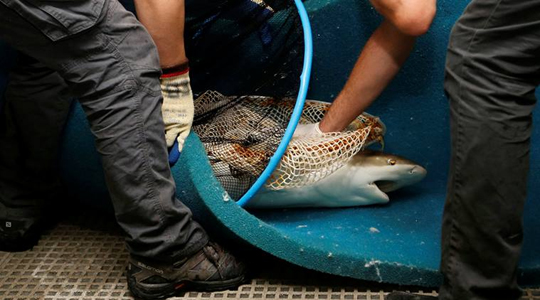New Delhi, Jul 14: India ranks second after Indonesia on the global list of shark fishing nations as fishing of the species in the country has progressed from being “incidental” to “targeted”, a wildlife body said on Thursday.
“Shark fishing in India has progressed from being incidental to targeted over the years. The transformation occurred only during the 1990s due to increasing demand in the international market which has caused serious concerns about the sustainability of these catches.
“Mechanised trawl nets, gills nets and line gear operations contribute to maximum exploitation,” WWF India said on the eve of Shark Awareness Day.
WWF India said under India's Wildlife Protection Act of India 1972, of the 88 shark species found in Indian waters, four have been listed as protected under Schedule I.
It said hunting, exploitation and trade of these four species – whale shark (Rhincodon typus), Pondicherry shark (Carcharhinus hemiodon), Ganges shark (Glyphis gangeticus) and the speartooth shark (Glyphis glyphis) is banned. It said in an effort to promote sustainable shark fisheries and better monitor how many and what species were being caught, India announced a ban on the practice of shark finning by issuing theFins Naturally Attached' policy requiring fishers to land sharks with their fins attached.
“Globally, finning is a common practice of removal of shark fins for export purpose to nations, particularly China, for its use in soups and other delicacies. The remaining shark body is discarded into the sea.
“Unable to move effectively without their fins, most times these animals sink to the bottom of the ocean and die either through suffocation or attacked by other predators. In India the shark fish is fully used and follows azero waste' policy,” WWF India said.
It said according to its report released last year, around one in four species of sharks, rays and skates is now considered to be “threatened” globally, primarily due to overfishing.






Comments
Add new comment